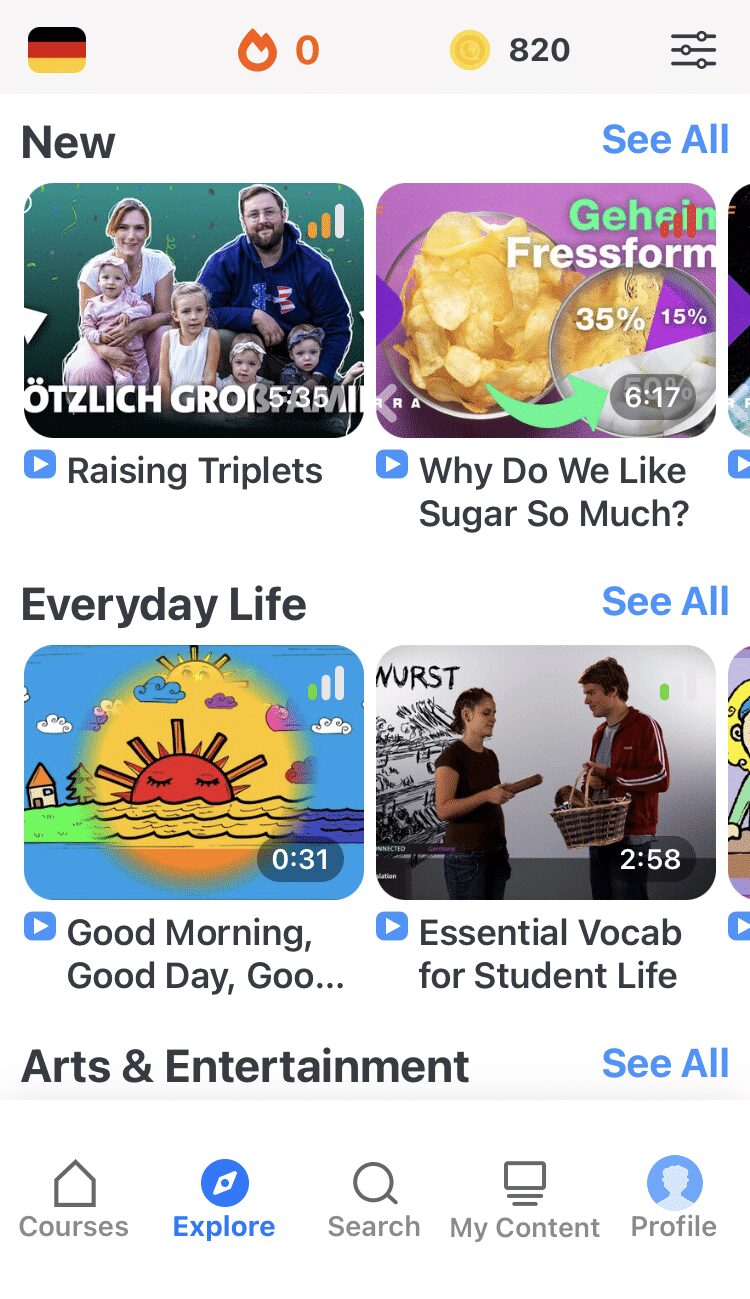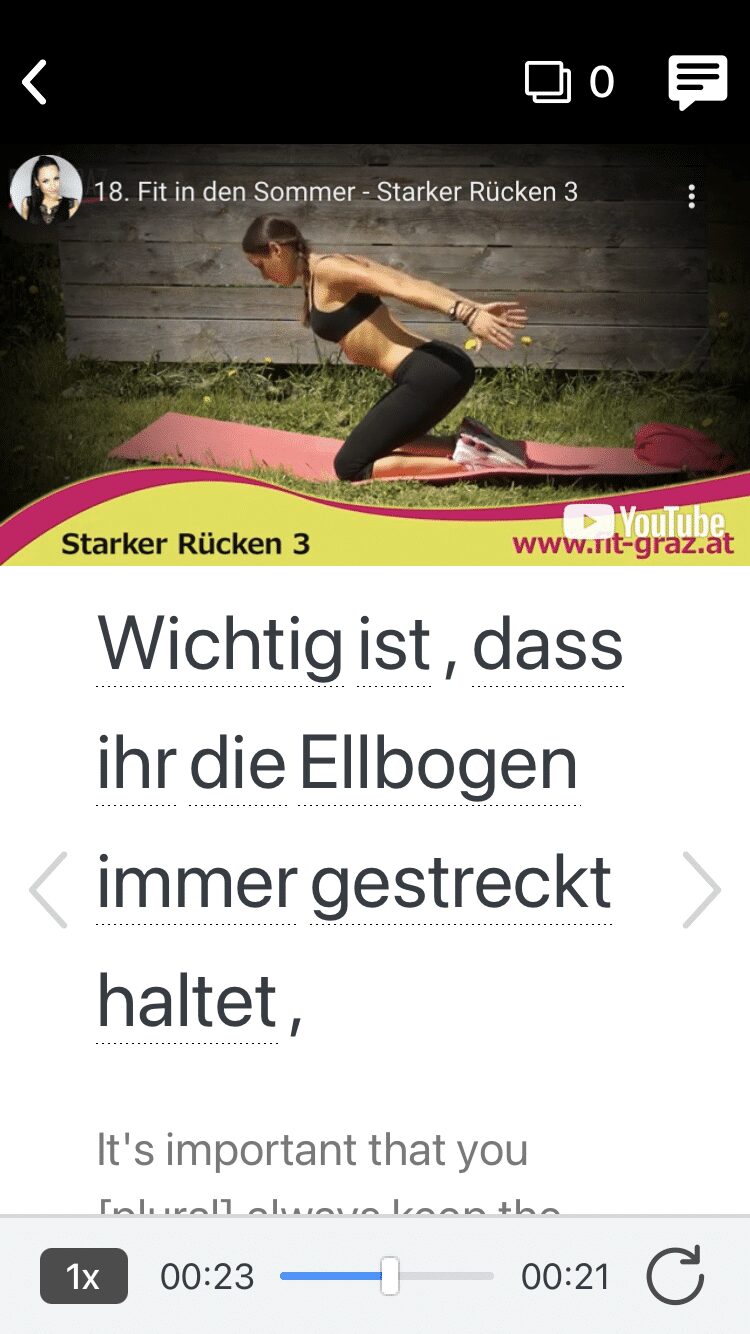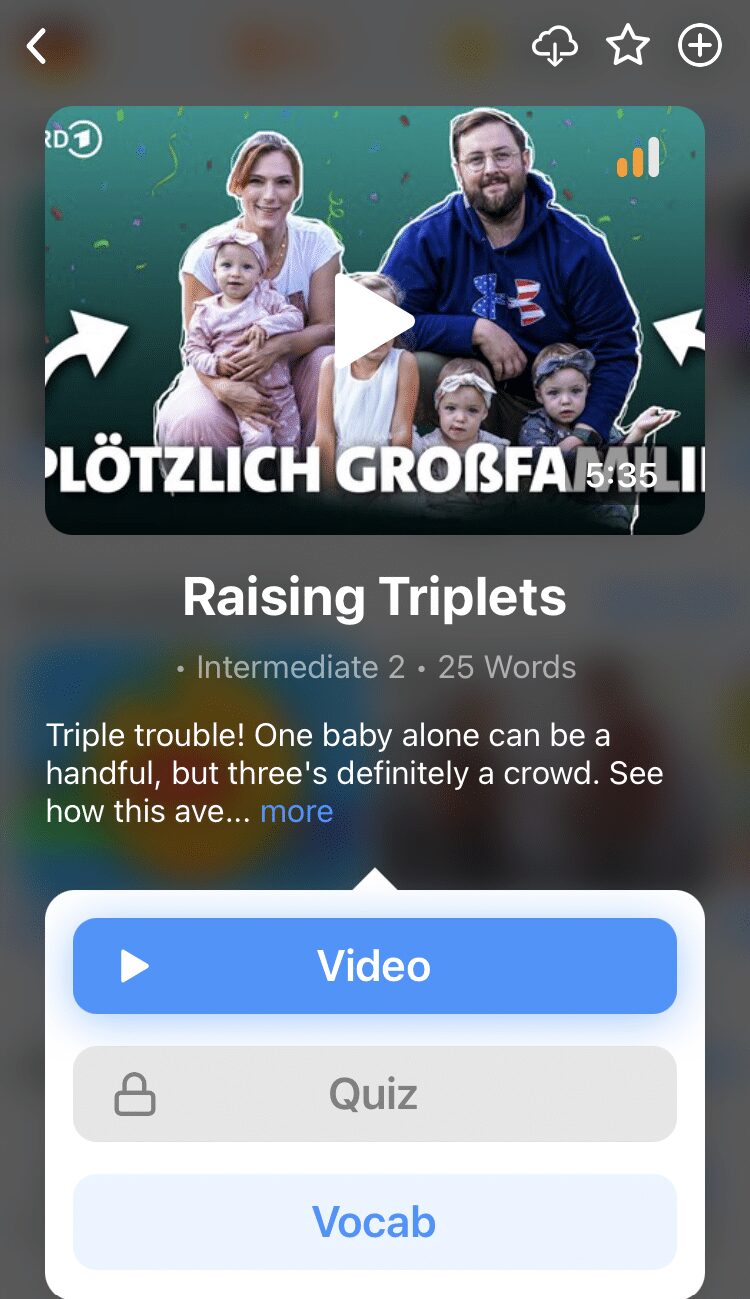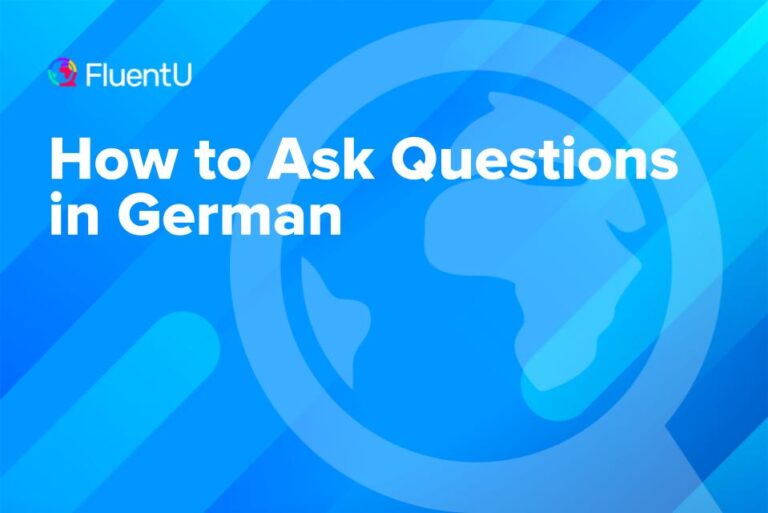Contents
- 1. Erbsenzähler — Pea counter
- 2. Spargeltarzan — Asparagus Tarzan
- 3. Heißluftgebläse — Hot air gun
- 4. Lackaffe — Varnished ape
- 5. Stinkstiefel — Stinky boot
- 6. Graue Maus — Gray mouse
- 7. Dünnbrettbohrer — Thin plank driller
- 8. Warmduscher — Someone who takes hot showers
- 9. Jeansbügler — Jeans-ironer
- 10. Tee-Trinker — Tea drinker
- 11. Rotzlöffel — Snot spoon
- 12. Miesepeter — Mean Peter
- 13. Teletubbyzurückwinker — One who waves back at Teletubbies
- 14. Hustensaftschmuggler — Cough syrup smuggler
- 15. Schlaftablette — Sleeping tablet
- 16. Frechdachs — Mischievous/Sassy badger
- 17. Fußhupe — Foot honk
- 18. Arschgeige — Ass violin
- 19. Bananenbieger — Banana bender
- 20. Lustmolch — Lust salamander
- 21. Arsch mit Ohren — Ass with ears
- 22. Evolutionsbremse — Evolution brake
- 23. Einzeller — Single-celled organism
- 24. Hosenscheißer — Pants pooper
- 25. Kotzbrocken — Vomit chunk
- 26. Gehirnverweigerer — Brain refuser
- 27. Schluckspecht — Swallow woodpecker
- 28. Tratschtante — Gossip aunt
- 29. Speichellecker — Saliva licker
- 30. Schweinehund — Pigdog
- 31. Trantüte — Blubber bag
- 32. Backpfeifengesicht — Slap face
- 33. Blockflötengesicht — Recorder face
- 34. Socken-in-Sandalen-Träger — Socks-in-sandals wearer
- 35. Weichei — Soft egg
- 36. Schattenparker — Shadow parker
- How to Use German Insults in Conversation
- Why Learn Insults in German?
- And One More Thing...
36 Creative German Insults

Let’s be honest: learning insults (along with curse words) is one of our secret first priorities when starting a new language. And it’s no surprise why—as offensive as they’re meant to be, insults can be awfully funny when translated literally.
It turns out German insults ( Beleidigungen ), besides being fascinatingly creative, are also quite a hoot.
In this post, you’ll find 36 hilarious German insults you can use to impress native speakers.
1. Erbsenzähler — Pea counter
Meaning: someone who nitpicks or cares about small, insignificant things.
We all know someone who has to pick everything apart. Counting peas is a tedious activity fit only for those who care enough about each one.
Example:
Nimm das alles nicht so ernst, du Erbsenzähler!
(Don’t take it all so seriously, you pea counter!)
2. Spargeltarzan — Asparagus Tarzan
Meaning: describing a skinny male, often one who doesn’t have visible muscles.
This one’s an appearance-based insult with some hilarious thought put into it.
Perhaps, for some, the addition of Tarzan in the word makes it sound not too offensive, as it implies that regardless of the person’s lankiness they probably are still physically strong.
Example:
Was macht dieser Spargeltarzan bei einem Bodybuilder-Wettbewerb?
(What is this Asparagus Tarzan doing at a bodybuilding competition?)
3. Heißluftgebläse — Hot air gun
Meaning: a loud mouth, someone who chatters on about nothing.
In English, we say someone is “full of hot air” when they blab on about nothing. If you knew that, then you could’ve probably guessed this German equivalent, which tacks on the gun ( Gebläse ) part.
An actual hot air gun does also make a constant whirring sound that can be quite obnoxious, hence its use in this insult.
Example:
Hör diesem Heißluftgebläse nicht zu!
(Don’t listen to that hot air gun!)
In this video, you can hear common funny German insults (and have fun watching):
4. Lackaffe — Varnished ape
Meaning: someone (often male) who dresses or openly expresses wealth and prestige, but is arrogant or overconfident.
In English, referring to someone as any kind of monkey or ape is usually meant to be taken as an insult. Similarly in German, an ape ( Affe ) often receives a negative connotation; calling someone Affe can mean you’re calling them an “idiot” or “fool.”
Add the noun Lack , which can mean “lacquer” or “varnish,” and you get an insult for a fool whose fancy get-up doesn’t cover their negative personality traits.
Example:
Der Lackaffe meint, der kann alles!
(The varnished ape thinks he can do anything!)
5. Stinkstiefel — Stinky boot
Meaning: a grump.
When we say someone is stinky, we’re usually saying they genuinely smell or they’re unpleasant.
A stinky boot in German describes a grump and someone you wouldn’t want to be around to have a good time; it’s an apt descriptor since none of us want to be near foul-smelling shoes for any period of time.
Example:
Ich will nicht mit diesem Stinkstiefel zusammenarbeiten.
(I don’t want to work with this stinky boot.)
6. Graue Maus — Gray mouse
Meaning: a wallflower, one who works to be inconspicuous.
Know someone who works hard to avoid the spotlight? You may choose to describe them as a gray mouse, a creature often unseen unless actively sought out.
Example:
Sie mag sich wie eine graue Maus kleiden, aber sie hat es faustdick hinter den Ohren.
(She may dress like a gray mouse, but she’s got a trick up her sleeve.)
7. Dünnbrettbohrer — Thin plank driller
Meaning: a slacker.
If you want to call out someone who’s always taking the easy way out, accuse them of being a driller of thin planks and they’ll get the message.
This insult is composed of an adjective and 2 nouns: dünn (thin), Brett (plank) and Bohrer (driller).
Example:
So ein Job ist sicher nichts für Dünnbrettbohrer!
(A job like this is certainly not for thin plank drillers!)
8. Warmduscher — Someone who takes hot showers
Meaning: a wimp.
This refers to an old German belief that manly men take cold showers. In this case, someone who takes hot showers does not venture out of their safe space, making them seem a bit weak.
Of course, taking hot showers in real life doesn’t actually tarnish your social integrity.
Example:
Wer im Winter im See baden will, darf kein Warmduscher sein!
(If you want to swim in the lake in winter, you can’t be a wimp!)
9. Jeansbügler — Jeans-ironer
Meaning: an uptight person.
Ever know someone so stiff-mannered that you’d imagine their own clothes are just as tense as them?
Well, this insult encapsulates that kind of sentiment by describing such a person as one who’d iron their own jeans.
Example:
Warum benimmst du dich wie ein Jeansbügler? Entspann dich!
(Why are you acting like a jeans-ironer? Relax!)
10. Tee-Trinker — Tea drinker
Meaning: a person deemed uncool for not drinking alcohol at a social event.
Beer is a big deal in Germany, and not just during Oktoberfest season.
So within a group of people drinking beer, one lone person opting to drink tea would seem a bit uncool.
Of course, it’s perfectly fine in reality to drink tea—don’t let peer pressure get to you!
Example:
Wer nicht da ist, ist ‘n Teetrinker!
(Whoever doesn’t come is a tea drinker!)
11. Rotzlöffel — Snot spoon
Meaning: a brat.
We too call impudent and cheeky children snot-nosed brats; actually, Rotznase is how you’d say “snot nose” and is basically the synonym of this insult.
The use of “spoon” seems odd, but the word may be derived from the word Laffe , which was an archaic insult of some sort.
Example:
Was bildet sich dieser Rotzlöffel eigentlich ein?
(Just what does this snot spoon think he’s doing?)
12. Miesepeter — Mean Peter
Meaning: bad-tempered person, grinch.
This insult is used to describe someone who can bring down the mood with a pessimistic or miserable attitude.
It’s uncertain why Peter was the name chosen to be the butt of this insult, but we imagine that real-life Peters would be displeased by this.
Example:
Geh Herrn Müller besser aus dem Weg, er ist ein echter Miesepeter.
(Don’t go near Mr. Müller, he’s a real mean Peter.)
13. Teletubbyzurückwinker — One who waves back at Teletubbies
Meaning: an idiot.
This mouthful certainly isn’t common at all, but it definitely takes the trophy for creativity.
Certainly, it’d be amusing to imagine anyone besides a child genuinely waving at the colorful TV characters.
The insult also can insinuate that the person is weak or cowardly.
Example:
Diese Teletubbyzurückwinker würden alles glauben.
(These Tellytubby wavers would believe anything!)
14. Hustensaftschmuggler — Cough syrup smuggler
Meaning: an incompetent person, who does pointless things.
This amusingly specific insult does give a good picture of someone who just does senseless things not worth doing.
Example:
Diesem miesen Hustensaftsschmuggler kann man nicht vertrauen!
(My brother is such a cough syrup smuggler! He’s got nothing going on!)
15. Schlaftablette — Sleeping tablet
Meaning: slow, non-energetic or unenthusiastic person; a bore.
The English equivalent would be a “stick in the mud,” someone whose lack of energy can be bad enough to create a draining effect on everyone else.
This insult would probably match anyone whose behavior can quite literally put you to sleep.
Example:
Ich will nicht neben Lola sitzen. Die ist ‘ne echte Schlaftablette.
(I don’t want to sit next to Lola. She’s a real sleeping tablet.)
16. Frechdachs — Mischievous/Sassy badger
Meaning: a rascal, usually for a cheeky child.
Frech is an adjective that can mean several things, including “sassy.” Apparently, the badger animal is meant to emphasize this trait.
This insult is actually quite lighthearted and can be used endearingly in some situations.
Example:
Du kleiner Frechdachs, komm hierher und entschuldige dich!
(You little mischievous badger, come here and apologize!)
17. Fußhupe — Foot honk
Meaning: a descriptor for small dogs.
This hilariously apt moniker is meant for very small dogs that are prone to being accidentally stepped on. Inevitably, this would cause them to bark, yap or vocalize their indignation in some way, and thus a “foot honk” is born.
Example:
Ich hasse seinen Hund, den kläffenden kleinen Fußhupe.
(I hate his dog, the yapping little foothorn.)
18. Arschgeige — Ass violin
Meaning: an annoying person.
Imagine someone so annoying they make you want to play the world’s saddest song on their rear end.
Example:
Hör auf, so eine Arschgeige zu sein!
(Stop being such an ass violin!)
19. Bananenbieger — Banana bender
Meaning: someone inept or weak.
This insult might sound bizarre, but unlike its namesake, it’s actually quite straightforward.
Example:
Sei kein Bananenbieger und mach deine Arbeit!
(Don’t be a banana bender and do your job!)
20. Lustmolch — Lust salamander
Meaning: a person with strong feelings of sexual desire.
This insult combines the idea of someone being overly lustful or lecherous with the image of a slimy salamander.
Example:
Lass uns in Ruhe, du Lustmolch!
(Leave us alone, you lust salamander!)
21. Arsch mit Ohren — Ass with ears
Meaning: a foolish or stupid person.
This insult is as straightforward as it gets.
Example:
Was für ein Arsch mit Ohren!
(What an ass with ears!)
22. Evolutionsbremse — Evolution brake
Meaning: a backward-thinking person.
This insult implies that someone is so backward or primitive that they’re actually hindering the progress of evolution.
Example:
Wie kannst du so was glauben? Du Evolutionsbremse!
(How can you believe something like that? You evolution brake!)
23. Einzeller — Single-celled organism
Meaning: a simple-minded or unintelligent person.
Germans compare someone who is so simple-minded or unintelligent to a single-celled organism!
Example:
Bist du ein Einzeller oder was?
(Are you a single-celled organism or something?)
24. Hosenscheißer — Pants pooper
Meaning: cowardly or timid person.
In Germany, this word is often used to mock someone for being cowardly or timid.
Example:
Komm schon, Hosenscheißer, hab keine Angst!
(Come on, pants pooper, don’t be afraid!)
25. Kotzbrocken — Vomit chunk
Meaning: someone who is disgusting or annoying.
This insult combines the unpleasant imagery of vomit with the idea of someone being a nuisance or a bother.
Example:
Ich kann diesen Kotzbrocken nicht mehr ertragen!
(I can’t stand this vomit chunk any longer!)
26. Gehirnverweigerer — Brain refuser
Meaning: a person who doesn’t think logically.
This insult implies that someone is actively refusing to use their brain or think logically.
Example:
Ich kann mit diesen Gehirnverweigerer nicht weiterarbeiten!
(I can’t keep working with these brain refusers!)
27. Schluckspecht — Swallow woodpecker
Meaning: a heavy alcohol drinker.
You can use this German word for someone who is always thirsty or constantly drinking.
Example:
Timo ist ein richtiger Schluckspecht. Er hat die ganze Flasche Wein weggekippt!
(Timo is a real swallow woodpecker. He knocked back the entire bottle of wine!)
28. Tratschtante — Gossip aunt
Meaning: gossipier.
That’s how Germans call someone who loves to gossip or spread rumors.
Example:
Ignoriere ihn einfach, der ist nur eine Tratschtante, die Gerüchte gerne verbreitet!
(Just ignore him, he’s just a gossip aunt who likes to spread rumors!)
29. Speichellecker — Saliva licker
Meaning: to be submissive or eager to obey instructions; a sycophant
This insult means acting towards others like a servant to an exaggerated or creepy extent.
Example:
Man redet nur so einen Quatsch, wenn man zum Speichellecker erzogen wurde!
(You only talk such nonsense if you were raised to be a sycophant!)
30. Schweinehund — Pigdog
Meaning: a dislikeable, disgusting or vile person.
This insult is quite versatile, just describing someone you don’t think that highly of at all.
Example:
Halt die Fresse, Schweinehund!
(Shut your mouth, pig dog!)
31. Trantüte — Blubber bag
Meaning: a slowpoke.
Tran literally means “blubber”, so fat from fish and a tüte is just a bag, like you’d get at the grocery store. I guess you would be lagging behind if you had a whole bag of fish fat to carry.
Example:
Beeil dich, du Trantüte, wir haben nicht den ganzen Tag Zeit!
(Hurry up, you slowpoke bag, we don’t have all day!)
32. Backpfeifengesicht — Slap face
Meaning: a face that deserves to be slapped.
Do you ever look at someone and feel like punching them in the face? Well, Germans have a word backpfeifengesicht — someone with a face that’s just asking to be slapped.
Example:
So ein Backpfeifengesicht wie dich habe ich lange nicht gesehen!
(I’ve not seen such a slap face like yours in a long time!)
33. Blockflötengesicht — Recorder face
Meaning: someone with an annoying face.
This insult is used to describe someone who has a face that’s as annoying as the sound of a recorder.
It’s a playful way of teasing someone for their appearance.
Example:
Hau endlich ab, du blödes Blockflötengesicht!
(Get lost already, you stupid recorder face!)
34. Socken-in-Sandalen-Träger — Socks-in-sandals wearer
Meaning: someone with poor fashion sense.
You might have heard of the German stereotype berating their beloved choice of footwear: socks…and sandals. And those who have spent much time in the country will know this has a rather undeniable grain of truth to it.
And it turns out this makes for a good insult too.
Example:
Nur ein Socken-in-Sandalen-Träger würde denken, dass das gut aussieht!
(Only a socks-in-sandals wearer would think that looks good!)
35. Weichei — Soft egg
Meaning: someone who is weak or cowardly.
How do you call someone who is a bit of a softie in German? A weichei that literally translates as “soft egg.” But maybe that’s just how they like their eggs!
Example:
Sei kein Weichei und steh zu deiner Meinung!
(Don’t be a soft egg and stand by your opinion!)
36. Schattenparker — Shadow parker
Meaning: someone who avoids sunlight.
In Germany, this word is often used to describe someone who parks their car in the shade to avoid the sun.
Example:
Schau ihn an, den Schattenparker, der hat Angst vor ein bisschen Sonne!
(Look at him, the shadow parker, he’s afraid of a little sunshine!)
How to Use German Insults in Conversation
Using insults in German is quite like how you’d do it in English.
When you’re directly aiming an insult at someone, the typical insulting phrase would be a simple “You ____ !”
German has two pronouns for “you” and being mindful of which “you” you use remains important within the world of German interactions.
However, for insults you’ll almost always use du , the informal “you” pronoun, as opposed to the formal Sie .
For example:
Du Idiot!
(You idiot!)
If you said “Sie Idiot!”, the respect implied by the pronoun would lower the offensive power of the insult to the point of sounding comedic.
The structure is slightly different when you’re talking about, not to, the person you’re insulting.
For example, you may be complaining to a pal about a bratty child you had to babysit:
Ich kann nicht mehr babysitten! Das Kind ist ein Rotzlöffel!
(I can’t babysit anymore! The kid is a snot spoon!)
Want to complain about a lazy co-worker? You might say something like:
Hans tut nichts für unser Projekt. Was für ein Dünnbrettbohrer!
(Hans does nothing for our project. What a thin-plank driller!)
Of course, we don’t endorse the regular use of insults in conversation. Even if the insults in our list are overall not as vulgar as other insults in the language, they still can cause offense.
Keep them within your German vocabulary bank so that you’re more in the know, but if you’re going to withdraw them for the sake of humor, make sure the person you’re speaking to is a friend or someone who can take it.
Certain situations, such as an informal gathering, may also allow for a few teasing jabs. Still, we always advocate being respectful, especially if you’re still learning the ropes of the language!
Why Learn Insults in German?
There’s more to learning insults besides just getting an edge and being able to duke it out verbally with a native speaker.
Insults are a part of common casual conversation. When you’re speaking with a native German speaker, you want to keep up with both the tone and content of your chat, which will motivate you to learn special features like German idioms and modern slang that pop up often in conversation. Gripes and complaints are an everyday thing, so it’s only natural that insults of some kind slip into daily chats as well.
That being said, insults can be very hard to identify unless you know them explicitly. Speaking generally, each culture has its own take on what’s offensive or not, and oftentimes foreign language learners learn the hard way that a certain word can carry another connotation.
Moreover, the German language has some very creative insults that can be lost in interpretation by a non-native speaker. Being left out of a conversation is already daunting enough, but misunderstanding an insult can lead to truly unfavorable consequences.
But one of the greatest pluses of learning German insults is that most of them are compound nouns. Plenty of fun can be had simply by exploring German compound nouns, which are famous for not just their bluntness in describing the object in question but also the sheer length they can reach. Insults are a great entry point into this aspect of German word usage.
Insults are also excellent opportunities to learn nouns individually. German insults that take the form of compound nouns are often composed of words you wouldn’t think to put together, which makes them very fun to pick apart.
You can also look the compound nouns up in a dictionary to further break them down. In addition to contextual definitions, FluentU also provides a collection of German media clips so you can see how they work in various situations.
FluentU takes authentic videos—like music videos, movie trailers, news and inspiring talks—and turns them into personalized language learning lessons.
You can try FluentU for free for 2 weeks. Check out the website or download the iOS app or Android app.
P.S. Click here to take advantage of our current sale! (Expires at the end of this month.)
Armed with these insults, you gain not only some fun new additions to your German vocabulary, but also an edge in casual lingo.
Remember to keep it respectful, but as an avid student of the German language, feel free to appreciate the creative work that goes into these insults and any others you learn!
Download: This blog post is available as a convenient and portable PDF that you can take anywhere. Click here to get a copy. (Download)
And One More Thing...
Want to know the key to learning German effectively?
It's using the right content and tools, like FluentU has to offer! Browse hundreds of videos, take endless quizzes and master the German language faster than you've ever imagine!
Watching a fun video, but having trouble understanding it? FluentU brings native videos within reach with interactive subtitles.
You can tap on any word to look it up instantly. Every definition has examples that have been written to help you understand how the word is used. If you see an interesting word you don't know, you can add it to a vocabulary list.
And FluentU isn't just for watching videos. It's a complete platform for learning. It's designed to effectively teach you all the vocabulary from any video. Swipe left or right to see more examples of the word you're on.
The best part is that FluentU keeps track of the vocabulary that you're learning, and gives you extra practice with difficult words. It'll even remind you when it’s time to review what you’ve learned.
Start using the FluentU website on your computer or tablet or, better yet, download the FluentU app from the iTunes or Google Play store. Click here to take advantage of our current sale! (Expires at the end of this month.)












